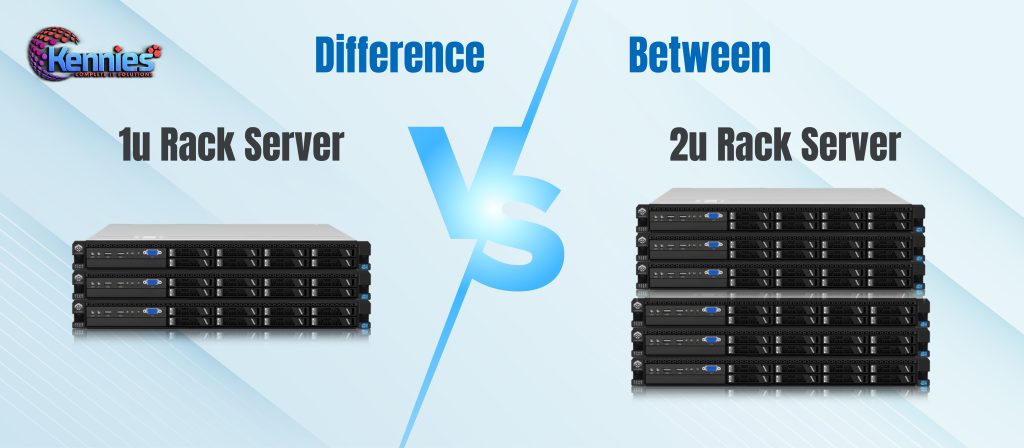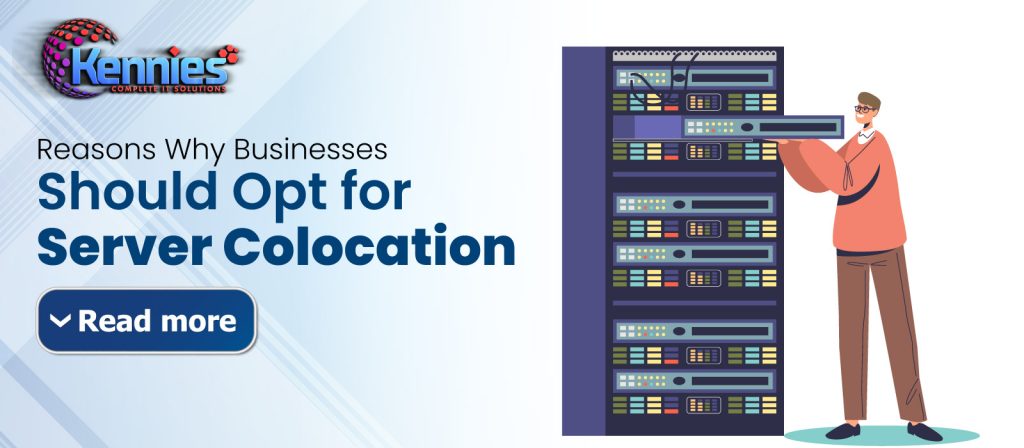
Colocation hosting is almost identical to dedicated hosting, which is an exceptional thing. In dedicated hosting, an individual rents servers as well as the infrastructure required to house and maintain them. While in colocation hosting in India, businesses rent space in a data center to house their own servers, computing infrastructure and IT equipment. It also provides significant benefits like better Internet bandwidth, server cooling systems and climate control, and reliable power. Today, in this blog, we are going to learn what colocation hosting is and its benefits for evolving businesses. So, without further ado, let’s get started.
What is Colocation Hosting, and How does it work?
As mentioned, when opting for colocation hosting, you house your servers and IT infrastructure in a third-party data center facility. You own the server, including software and hardware, but lease other resources like power, physical space, security, and network connectivity from the data center. You get complete control and ownership of the servers and IT infrastructure, but your business doesn’t need to handle the high costs of building and handling an in-house data center.
Furthermore, colocation hosting will suit big sites with high traffic, which means mid-sized or larger web companies. With colocation hosting, you acquire more security compared to standard hosting and entire control and flexibility. You can also benefit from having your gear in a highly secure environment that is climate-controlled and backed up by generators if the power goes down. However, in order to set up a colocation hosting arrangement, the customer must have their own physical server-one that they own.
The customer is only renting space, much like they would at a storage facility, rather than renting a server from the hosting provider. The client moves the server in person to the colocation hosting provider’s location, which is usually a data center. The customer owns and retains control over all hardware and software settings for that server; they are just renting space within the data center or colocation site. The user can rapidly upgrade or downgrade features like bandwidth and Rackspace to match the demands of the business by contacting the staff of the colocation hosting provider.
Benefits of Colocation Hosting
One of the main factors that sets colocation hosting apart from other hosting solutions is the level of control over hardware and software configurations. Instead of renting server space or resources from a provider, the solution enables you to rent physical space in a data center to house your servers. As a result, you maintain complete control over your servers while also benefiting from the strong infrastructure, bandwidth, connectivity, and security provided by the third-party data center. Before going ahead in this post, let’s discuss the significant advantages of colocation hosting.
Scalability and Cost-Effectiveness: Colocation hosting increases cost-effectiveness by sharing data center resources, freeing you of the need to build and manage a dedicated data center to rent your servers and IT infrastructure. It means you don’t need to take the stress of handling the costs of power, cooling, ongoing maintenance, humidity control, etc. It’s also scalable since you can house quarter rack colocation and add on more servers when required without any additional infrastructural expenses. The cost of housing the additional rack space is the major financial consideration.
Build Physical Infrastructure: Colocation hosting providers provide businesses access to vital infrastructure like rack space, cooling systems, and reliable power supply. A rack is generally a standardized frame built to accommodate servers and other hardware. You can rent rack space at a colocation data center to rent your servers.
Modern cooling systems, including liquid cooling, precision air conditioning, and immersion cooling, protect your servers from overheating.
Minimize Downtime : A third-party data center hosting will offer redundant power supply and cooling systems, including a climate-controlled environment, different network connections, and on-site backup generators. It guarantees that your servers stay online, even when there’s a disruption, overcoming the risk of downtime. During client-facing IT systems, where any downtime results in a loss of business and reputation, this can be an evolving benefit.
Enhanced Infrastructure: Colocation hosting companies make significant investments in cutting-edge data center equipment and amenities, including networking switches, storage arrays, and high-performance servers. High-capacity power systems and adaptable cooling solutions enable these data centers to efficiently manage the resource-intensive and complicated workloads of contemporary enterprises. Get access to state-of-the-art machinery without a substantial financial commitment.
Round-the-Clock Support: Colocation hosting providers often provide you with 24*7 technical support to help with server maintenance, controlling performance, and avoiding downtime. It also reduces the burden on your in-house IT staff, freeing them up to focus on core business functions that upgrade your bottom line.
Conclusion
Indeed, colocation hosting in India stands out as a solid solution for evolving businesses aiming to strive efficiently while controlling their IT infrastructure. By leveraging the modern facilities and security of a third-party data center, organizations can take the benefits of upgraded performance, enhanced uptime, and robust disaster recovery options without the heavy costs associated with building and maintaining their data centers.
Furthermore, colocation hosting conveys the flexibility to exceed as needed,
accommodating future growth and technological modifications. It offers a strategic balance between control and outsourced expertise, enabling businesses to concentrate on their core operations while ensuring their IT infrastructure is in safe hands.
According to the current competitive landscape, where data integrity, security, and scalability are pivotal, colocation hosting introduces a compelling option for businesses poised for growth. Thus, by embracing this model, companies can conquer higher operational efficiency, improved reliability, and the agility needed to adapt to evolving market demands, setting the stage for sustained success and innovation.
Frequently Asked Questions
What is colocation hosting?
Colocation hosting is a service where businesses can rent space in a third-party data center to house their own servers and networking equipment. The data center provides the physical space, power, cooling, and security while the business maintains control over the hardware and software.
How does colocation hosting differ from traditional hosting services?
Traditional hosting services, such as shared hosting or dedicated hosting, involve renting both the server and the space from a hosting provider. In contrast, colocation hosting allows businesses to own and manage their servers while leveraging the infrastructure and facilities of a third-party data center.
What are the primary benefits of colocation hosting for growing businesses?
Colocation hosting offers several benefits, including enhanced security, improved reliability, scalability, and cost savings. Businesses can benefit from state-of-the-art facilities, robust power and cooling systems, and high levels of physical and network security without the capital investment required to build their own data centers.
How does colocation hosting support business scalability?
Colocation hosting allows businesses to easily scale their IT infrastructure by adding more servers and equipment as needed. The data center can accommodate growth without the need for significant upfront investments in physical space, power, or cooling, making it easier for businesses to expand their operations.
What should businesses consider when choosing a colocation hosting provider?
When selecting a colocation hosting provider, businesses should consider factors such as the location of the data center, the quality of infrastructure, security measures, network connectivity, and the level of support and services offered. It’s also important to evaluate the provider’s reputation, uptime guarantees, and scalability options to ensure they align with the business’s long-term needs.










